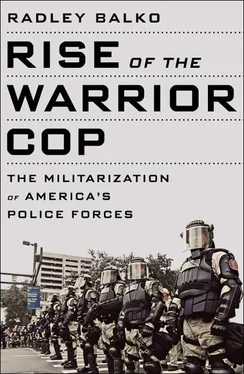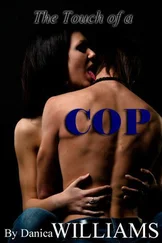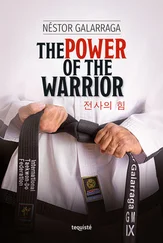Perhaps the biggest problem with police unions, however, is that they present a major obstacle to real reform. Their political clout is difficult to surmount. Democrats don’t cross them because of the traditional alliance of unions and public employees. Republicans rarely cross them because of the party’s law-and-order reputation. But awareness of their formidable influence and likely opposition to any accountability efforts is at least a start.
Good ideas for accountability policies include civilian review boards, but only if they have subpoena power, are granted the authority to impose discipline, and can’t be overruled by arbitrators. Unfortunately, there aren’t many in the country that have those powers. And as we saw with the death of Alberta Spruill and other cases, even a major, headline-grabbing scandal isn’t enough to establish credible civilian oversight.
The most productive accountability policy—and thus the most controversial and least likely to be adopted—would be to impose more liability on police officers who make egregious errors. Under the qualified immunity from civil lawsuits currently afforded to police under federal law, a police officer can’t be sued for mere negligence—or even for gross negligence that results in a fatality. To even get into court against a police officer, a plaintiff must show not only that a police officer intentionally violated the plaintiff’s constitutional rights, but that said rights were well established at the time they were violated. With this protection, police officers aren’t required to keep informed on the latest court decisions that pertain to their job. In fact, in a perverse way, it even discourages police departments and officers from doing so. A cop who is aware that he was violating someone’s rights is much more likely to be found liable than a cop who isn’t.
Some commentators like University of Tennessee law professor Glenn Reynolds have suggested that SWAT teams that conduct forced-entry raids be held to a strict liability standard. If they raid the wrong house, they’re liable for damages no matter what; whether the mistake was due to a bad informant, a mistyped address, or just a bad investigation wouldn’t matter. Such a policy would be difficult to apply in many cases. For example, if police claim in the affidavit that they’re looking for a large stash of heroin but raid a house that turns up only a small amount of pot, would that be considered a “wrong house” raid? Still, adopting the policy just for cases of clear, unambiguous mistakes would probably encourage more caution, more restraint, and fewer errors.

THE MOST DIFFICULT CHANGE IS THE ONE THAT’S PROBABLY necessary to make any of these others happen. The public needs to start caring about these issues. The proliferation of “cop watch” sites, citizen-shot video of police misconduct, and coverage of police abuse incidents by a bevy of online media is encouraging. Another good sign is the fact that this growing skepticism of police has been accompanied by a decline in violence against police officers themselves. Activists are fighting police abuse with technology and information, not with threats and violence. But while exposing individual incidents of misconduct is important, particularly to the victim of the misconduct, it’s more important to expose the policies that allow misconduct to flourish. Bad systems will continue to turn out bad results. And bad systems will never be reformed until and unless policymakers and politicians (a) are convinced there is a problem, and (b) pay a political price for not addressing it. Yes, trends that develop over years or decades can gradually normalize things that we might not have tolerated had they been imposed on us all at once. But it’s still rather remarkable that domestic police officers are driving tanks and armored personnel carriers on American streets, breaking into homes and killing dogs over pot . They’re subjecting homes and businesses to commando raids for white-collar and even regulatory offenses, and there’s been barely any opposition or concern from anyone in Congress, any governor, or any mayor of a sizable city. That, more than anything, is what needs to change.
The war on drugs… I liken it to the Vietnam War. Hit and miss, there is no clear win—we don’t know if we’re gaining ground or not. What we want to do is we want to change our strategy. We want to make this more like a Normandy invasion.
—FORMER CLAYTON COUNTY, GEORGIA SHERIFF VICTOR HILL
The way these people were treated has to be judged in the context of a war.
—HALLANDALE, FLORIDA, ATTORNEY RICHARD KANE, AFTER CITY POLICE MISTAKENLY RAIDED EDWIN AND CATHERINE BERNHARDT
I have my own army in the NYPD—the seventh largest army in the world.
—NEW YORK CITY MAYOR MICHAEL BLOOMBERG
Officers’ safety comes first, and not infringing on people’s rights comes second.
—PHILADELPHIA POLICE DEPARTMENT SPOKESPERSON FRAN HEALY
My message to my troops is if you see anybody carrying a gun on the streets of Milwaukee, we’ll put them on the ground, take the gun away and then decide whether you have a right to carry it.
—MILWAUKEE POLICE CHIEF ED FLYNN, DESCRIBING HOW HIS OFFICERS WOULD HARASS LEGAL GUN OWNERS, IN SPITE OF WISCONSIN STATE LAW
Given that the Founders could never have anticipated police as they exist today, maybe Are cops constitutional? is the wrong question. A better one might be Are today’s police forces consistent with the principles of a free society?
It’s difficult to say that they are. Police today are armed, dressed, trained, and conditioned like soldiers. They’re given greater protections from civil and criminal liability than normal citizens. They’re permitted to violently break into homes, often at night, to enforce laws against nonviolent, consensual acts—and even then, often on rather flimsy evidence of wrongdoing. Negligence and errors in judgment that result in needless terror, injury, and death are rarely held accountable. Citizens who make similar errors under the same circumstances almost always face criminal charges, usually felonies.
Police today share a bond tighter than that shared by soldiers who fight in wars together. There’s a strict code of omerta that’s enforced more ruthlessly and thoroughly than in any other non-criminal profession. Cops who rat out other cops tend not to remain cops for very long. Lying and exaggerating in police reports and on the witness stand isn’t just common, it’s routine and expected. It’s a part of the job.
Today, there are entire communities in which a large percentage of residents refuse to talk to police, under any circumstances. These so-called “Stop Snitch’n” movements are often derided by politicians and police officials, but there’s a pretty astonishing revelation driving them: There are large swaths of the population who fear the people who are supposed to protect them from criminals more than they fear the criminals.
As I’ve written and spoken on this issue over the years, I’ve even had current and former members of the military tell me the object to the word militarization —not because they disagree with the basic premise of what’s happened to police departments in recent years, but because from their own experience, the military is more accountable and disciplined than many police departments today. Several have even told me that military raids on residences where they suspected insurgents may be hiding are done more carefully and with more deference to the rights of potential innocents than some of the SWAT raids they see and read about today. The police today may be more militarized than the military.
Читать дальше













